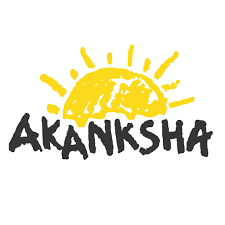
Website CEEW - Council on Energy, Environment and Water
About us
The Council on Energy, Environment and Water (CEEW) is one of South Asia’s leading not-for-profit policy research institutions. The Council uses data, integrated analysis, and strategic outreach to explain – and change – the use, reuse, and misuse of resources. The Council addresses pressing global challenges through an integrated and internationally focused approach. It prides itself on the independence of its high-quality research, develops partnerships with public and private institutions, and engages with the wider public.
In 2019, CEEW once again featured extensively across nine categories in the 2018 Global Go To Think Tank Index Report, including being ranked as South Asia’s top think tank (15 th globally) with an annual operating budget of less than USD 5 million for the sixth year in a row. CEEW has also been ranked as South Asia’s top energy and resource policy think tank in these rankings. In 2016, CEEW was ranked 2nd in India, 4 th outside Europe and North America, and 20 th globally out of 240 think tanks as per the ICCG Climate Think Tank’s standardised rankings.
In nine years of operations , The Council has engaged in over 230 research projects, published over 160 peer-reviewed books, policy reports and papers, advised governments around the world nearly 530 times, engaged with industry to encourage investments in clean technologies and improve efficiency in resource use, promoted bilateral and multilateral initiatives between governments on 80 occasions, helped state governments with water and irrigation reforms, and organised nearly 300 seminars and conferences.
The Council’s major projects on energy policy include India’s largest multidimensional energy access survey (ACCESS); the first independent assessment of India’s solar mission; the Clean Energy Access Network (CLEAN) of hundreds of decentralised clean energy firms; the CEEW Centre for Energy Finance; India’s green industrial policy; the USD 125 million India-U.S. Joint Clean Energy R&D Centers; developing the strategy for and supporting activities related to the International Solar Alliance; designing the Common Risk Mitigation Mechanism (CRMM); modelling long-term energy scenarios; energy subsidies reform; energy storage technologies; India’s 2030 Renewable Energy Roadmap; energy efficiency measures for MSMEs; clean energy subsidies (for the Rio+20 Summit); Energy Horizons; clean energy innovations for rural economies; community energy; scaling up rooftop solar; and renewable energy jobs, finance and skills.
The Council’s major projects on climate, environment and resource security include advising and contributing to climate negotiations in Paris (COP-21), especially on the formulating guidelines of the Paris Agreement rule-book; pathways for achieving Nationally Determined Contributions (NDCs) and mid-century strategies for decarbonisation; assessing global climate risks; heat-health action plans for Indian cities; assessing India’s adaptation gap; low-carbon rural development; environmental clearances; modelling HFC emissions; the business case for phasing down HFCs; assessing India’s critical minerals; geoengineering governance; climate finance; nuclear power and low-carbon pathways; electric rail transport; monitoring air quality; the business case for energy efficiency and emissions reductions; India’s first report on global governance, submitted to the National Security Adviser; foreign policy implications for resource security; India’s power sector reforms; zero budget natural farming; resource nexus, and strategic industries and technologies; and the Maharashtra-Guangdong partnership on sustainability.
The Council’s major projects on water governance and security include the 584-page National Water Resources Framework Study for India’s 12 th Five Year Plan; irrigation reform for Bihar; Swachh Bharat; supporting India’s National Water Mission; collective action for water security; mapping India’s traditional water bodies; modelling water-energy nexus; circular economy of water; participatory irrigation management in South Asia; domestic water conflicts; modelling decision making at the basin-level; rainwater harvesting; and multi-stakeholder initiatives for urban water management.
Job Description
Council on Energy, Environment and Water (CEEW), New Delhi
At CEEW, we are deliberate about what we stand for (and what we don’t stand for!) as an employer. So, if the below description strikes a chord, we would love to hear from you!
At CEEW, we build careers in public policy
- We offer strong visionary leadership – with emphasis on research and impact at scale
- We actively promote leadership by initiative
- We celebrate talent and ambition
- You will be surrounded by smart people who will challenge you and help you grow
- You will learn faster than your peers in other organizations
- Curiosity and irreverence, as well as responsibility, come together at CEEW
- You will get above-market remuneration
- We provide a safe space for all
- At CEEW, your life is your example for others
Designation offered
Research Intern
Team/ Focus area
Risks and Adaptation – Air Quality
Location
New Delhi, India
Reporting to
Programme Associate
Purpose
CEEW seeks to hire a research intern with good Python programming skills to join the Risks and Adaptation – Air Quality team. The role involves assisting the air quality and renewable energy teams in building dashboards, data analysis, and automation of workflows. The role provides opportunities to interact with and learn from the different teams at CEEW and will appeal to those interested in building quantitative and programming skills.
Job duties and accountabilities
Research
- Create dashboards using Python libraries like Streamlit, Dash, etc.
- Perform data analysis and assist in building statistical models.
- Assist in automating GIS workflows using Python.
- To provide research content for the organization’s web pages, blogs, issue briefs, etc.
Programme Assistance
- Assist with project implementation, including help with preparing presentations, factsheets, and other communication material.
- Support efforts to use new media platforms for wider dissemination of CEEW’s work and, in turn, closer engagement with the wider community
- Participate in weekly team meetings and assist with preparing minutes
- Accompany the other team members for meetings with other stakeholders; prepare minutes of the meetings and assist with the relevant follow-up.
Selection Criteria
Qualification
- Enrolled in or completed a bachelors degree in engineering, science, statistics, GIS, or allied fields.
Work experience
- 0-1 years of experience.
- Prior experience in Python programming.
Key skills
- Good Python programming skills.
- Desirable – Experience with GIS packages like ArcGIS or QGIS.
- Desirable – Prior experience with dashboard libraries like Streamlit, Dash, etc.
- Desirable – Good knowledge of statistics.
- Desirable – Knowledge of Pandas and Xarray.
If you are passionate about applying your quantitative and programming skills to solve challenging problems in the sustainability space, reach out to us.
CEEW operates in a dynamic environment and the candidate will be required to show flexibility in undertaking a variety of tasks.
Compensation
Competitive compensation – commensurate to the experience and matching the best of standards adopted by industry or other similar organisations for similar roles.
Application Process
CEEW is an equal opportunity employer and the selection process does not discriminate on the basis of age, gender, caste, ethnicity, religion, or sexuality. Female candidates are encouraged to apply.
Applications will be reviewed on a rolling basis. Interested applicants are advised to apply at the earliest possible.
Only shortlisted candidates will be notified by us. We appreciate your interest.
To apply for this job please visit ceew.zohorecruit.in.





